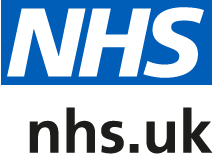Oak Vale Medical Centre
The Fiveways Centre, 215 Childwall Road, Liverpool, L15 6UT
Telephone: 0151 295 9330
Sorry, we're closed

NHS tips to prevent falls and avoid hospital admissions ‘Too Much Blue – Get a Review’ campaign aimed at helping children and young people manage asthma Super Bodies – tackling the back-to-school bugs Coffee With Mates – Oak Vale Patient Coffee Mornings Tuesday 15th July 9:30-12:30pm Coffee Morning for the Chinese community at The Joseph Lappin Centre North West GP urges ‘have health services in your pocket this summer with the NHS App’ Celebrating Carers Week 2025 People over 40 encouraged to get their blood pressure checked Bowel Cancer Awareness Month 2025 Cheshire and Merseyside health leaders say ‘Smoking Ends Here’ this No Smoking day
Supporting your children’s ‘super bodies’ this winter
As children return to schools and nurseries after the autumn half term, the NHS in Cheshire and Merseyside are sharing guidance for parents and carers on common winter illnesses that often start circulating at this time of year.
Illnesses like coughs, sore throats and ear ache are extremely common in young children, but healthcare leaders are asking parents and carers to think twice before treating them with antibiotics, as they rarely speed up recovery for these conditions, which are most often caused by viral infections.
Instead, the NHS Cheshire and Merseyside ‘Super Bodies’ campaign is sharing a guide for parents and carers on the simple things they can do to treat these common ailments at home, as well as helping them to spot the signs of a more serious illness, and knowing when and where to go for medical help.
Dr Fiona Lemmens, GP and Deputy Medical Director at NHS Cheshire and Merseyside, said:
“Children are likely to pick up common viruses at this time of year, especially while mixing in school and nursery environments, but they are usually nothing to worry about. Their ‘super bodies’ get to work, and most children with a normal immune system and up to date immunisations will fight off these common illnesses with a little TLC at home.
“The evidence shows that most children actually recover from these ailments in the same amount of time with or without antibiotics, which have no effect on viruses and so don’t actually help to fight off the infection.”
Susanne Lynch MBE, Chief Pharmacist at NHS Cheshire and Merseyside, added:
“Antibiotics are no longer routinely used to treat most infections. They are often unlikely to speed up the healing process, they can cause unwanted side effects such as diarrhoea, and your child will usually get better without taking unnecessary medication.
“Overusing antibiotics can also contribute to ‘antibiotic resistance’, which means that these medications are becoming less effective at killing off bacteria. This is a very serious threat to the health of our population, but we can all help to fight back by only using antibiotics when they are needed.
“You know your children best, so do seek medical help if you are concerned about their symptoms, or if their ‘super bodies’ need a bit more support because they are immunosuppressed or have other existing medical conditions.”
Parents and carers of young children can find information on treating coughs, ear aches and sore throats at home, on the ‘Super Bodies’ website page, as well as finding a list of more serious signs and symptoms to look out for.
They can find out when they need to stay home, visit their GP, call NHS 111, or when to call 999 or attend A&E.
Visit: www.cheshireandmerseyside.nhs.uk/super-bodies to find out more.
For more information and support when your child is unwell, you can also:
- Visit the Alder Hey symptom checker online: alderhey.nhs.uk/conditions/symptoms-checker
- Download the Healthier Together App: healthiertogether.app
Content provided by NHS Cheshire and Merseyside.
Published on Mon, 04 Nov 2024 11:27:45 GMT
Modified on Mon, 12 May 2025 13:59:27 GMT
Opening Times
- Monday
08:00am to 06:30pm - Tuesday
08:00am to 06:30pm - Wednesday
08:00am to 12:30pm
01:30pm to 06:30pm - Thursday
08:00am to 06:30pm
Last Thursday of month closed at 1pm - Friday
08:00am to 06:30pm - Saturday
CLOSED - Sunday
CLOSED
Liverpool CCG News
NHS tips to prevent falls and avoid hospital admissions
With thousands of people, particularly older people, ending up in hospital because of a fall, this Falls Awareness Week (15-19 September) the NHS in the North West is encouraging people who may be at risk to take simple steps to stay safe, steady and…
‘Too Much Blue – Get a Review’ campaign aimed at helping children and young people manage asthma
A new campaign is set to launch across Cheshire and Merseyside this autumn to help children and young people better manage their asthma.
Super Bodies – tackling the back-to-school bugs
As children start mixing at schools and nurseries again, so do the germs that cause common winter bugs like coughs, sore throats and ear ache.
North West GP urges ‘have health services in your pocket this summer with the NHS App’
One of the North West’s leading GPs is encouraging people to ‘keep health services in their pocket’ this summer by using the NHS App to stay well and get any medical help they need.
People over 40 encouraged to get their blood pressure checked
This World Hypertension Day and during May Measure Month, NHS Cheshire and Merseyside is encouraging people over 40 to get their blood pressure checked.





